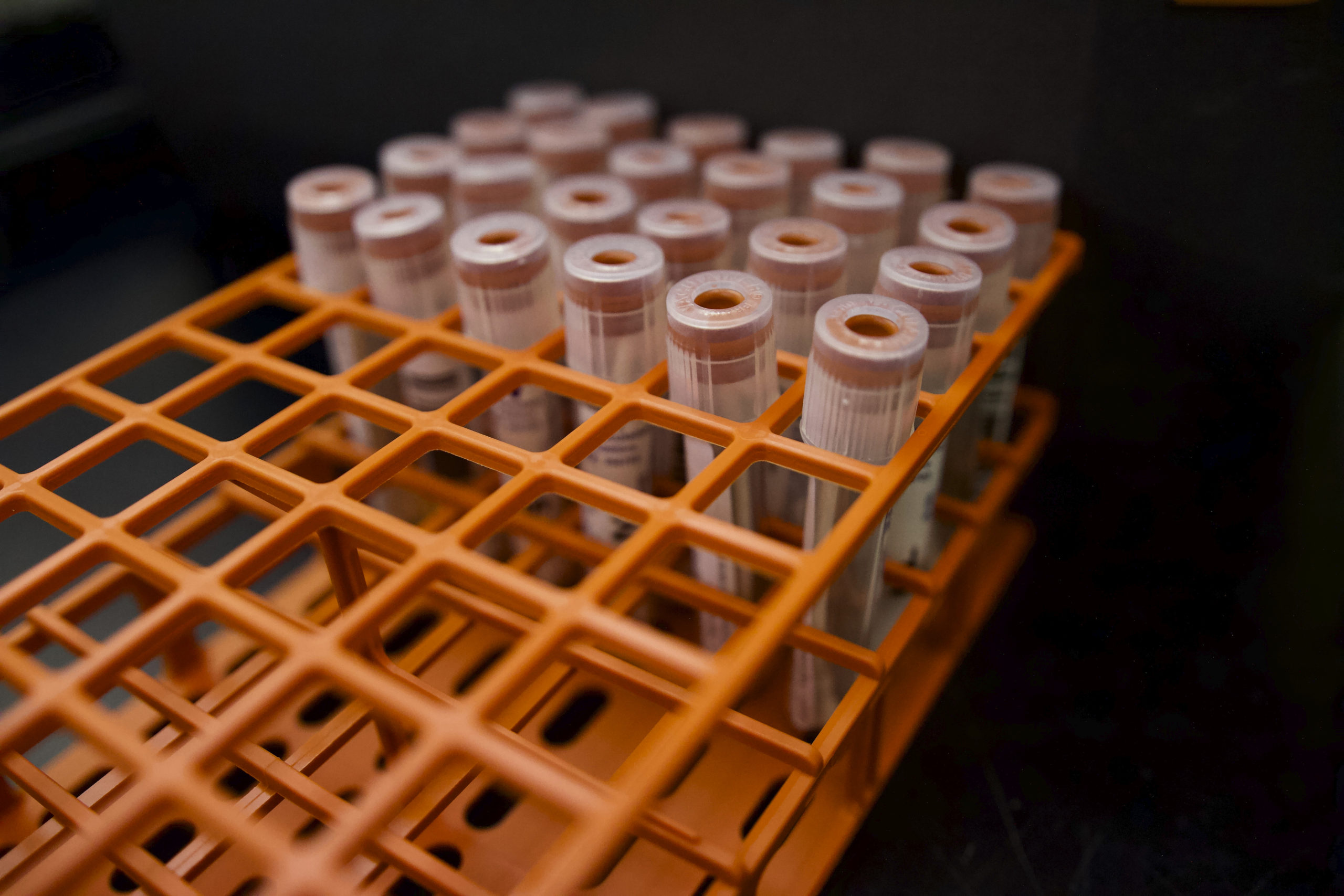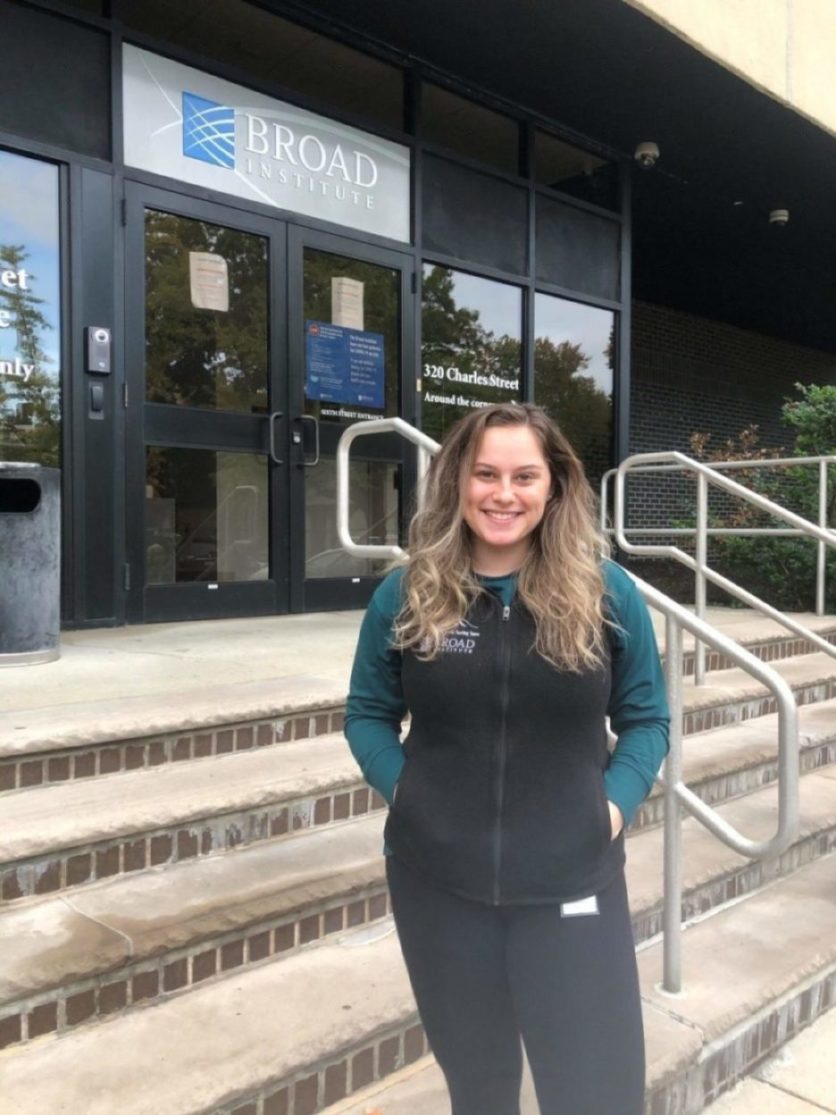#ClarkTogether
Clark alumni play critical roles in COVID-19 testing process

Two Clark University alumni have taken on roles at the Broad Institute, joining teams of technicians that are working around the clock to process COVID-19 tests from colleges and universities across the country — including Clark.
Emma Bulman ’20 and Zeke Farrell ’16 work as process development associates at the Cambridge, Mass.-based facility — a former clinical process lab used for genomic sequencing that was converted into a large-scale coronavirus testing facility days after the pandemic reached the United States.
“I’m doing a variety of different things right now — mainly performing the testing, helping make the process more efficient, and learning about which sites we can help with testing,” Farrell says. “It’s busy right now and samples are being sent in from all over the country, so it’s important to communicate with different organizations to make sure we get the test results out to everyone.”
Farrell majored in biochemistry and molecular biology at Clark and joined the Broad Institute in June after spending nearly three years working at a DNA sequencing lab in Boston. Bulman, a biology major, was hired at the lab for her first full-time job out of college and works the overnight shift. She was recently featured in the Worcester Telegram & Gazette for her role at the institute.
Both alumni were also athletes at Clark — Farrell played for the men’s soccer team while Bulman served as captain of the women’s swimming and diving team.
“Clark was an amazing time for me. I met some lifelong friends that all live in Boston now,” Farrell says.

Bulman says the experience she gained at Clark, both in the lab and in the pool, prepared her for her job at the Broad. She landed the position after being contacted by a recruiter on LinkedIn shortly before graduation.
“The lab skills that I developed at Clark were major and I wouldn’t be able to do this job without them. I’ve been very thankful for the amount of wet-lab experience I got at Clark,” she says. “The teamwork aspect was also important. I almost feel like I’m still at Clark. At the Broad, we’re always working together and checking in on each other.”
Bulman spent her last two semesters at Clark in the Foster & Baker Lab, where she worked on a life history morphology project of the stickleback fish. She also completed an internship at Verax Biomedical in Marlborough, Mass., served as president of the Student-Athlete Advisory Committee, and was a One Love facilitator with the Title IX office.
Before their 10-hour shifts at the Broad, Bulman and Farrell suit up in head-to-toe personal protective equipment, including face masks, booties, lab gowns, two sets of gloves, and safety glasses or face shields. Bulman says the technicians’ work stations vary each shift, giving them an opportunity to become experts at every step of the testing process.
“Being a functioning part of this lab and knowing I’m making a difference and getting through those 6,000 samples a day at the COVID lab is such a fulfilling experience,” Bulman says. “I feel like I’m in a really good spot. This is exactly where I want to be right now.”
The Broad Institute was launched by MIT and Harvard in 2004 to use genomics to advance understanding of the biology and treatment of human disease. In March, the Institute began working with the Commonwealth of Massachusetts, Massachusetts State Public Health Laboratory, and area hospitals to process COVID-19 test samples.
The Institute is currently partnering with 108 public and private colleges and universities in Massachusetts and the surrounding area to provide regular COVID-19 testing for students, faculty, and staff.
The Broad Institute has completed more than 2.4 million tests to date, according to its website.


